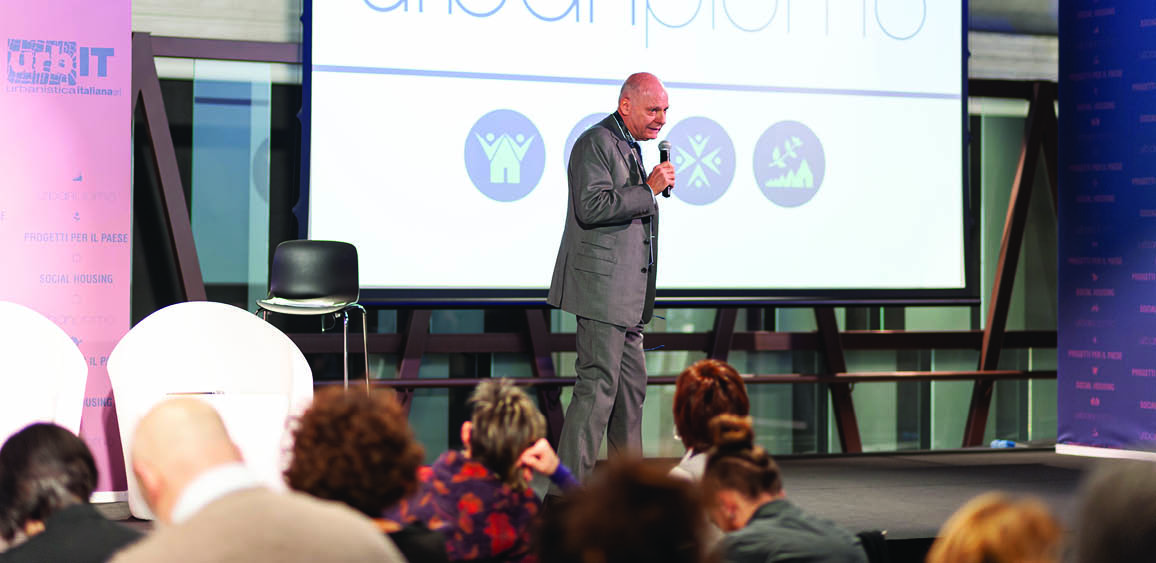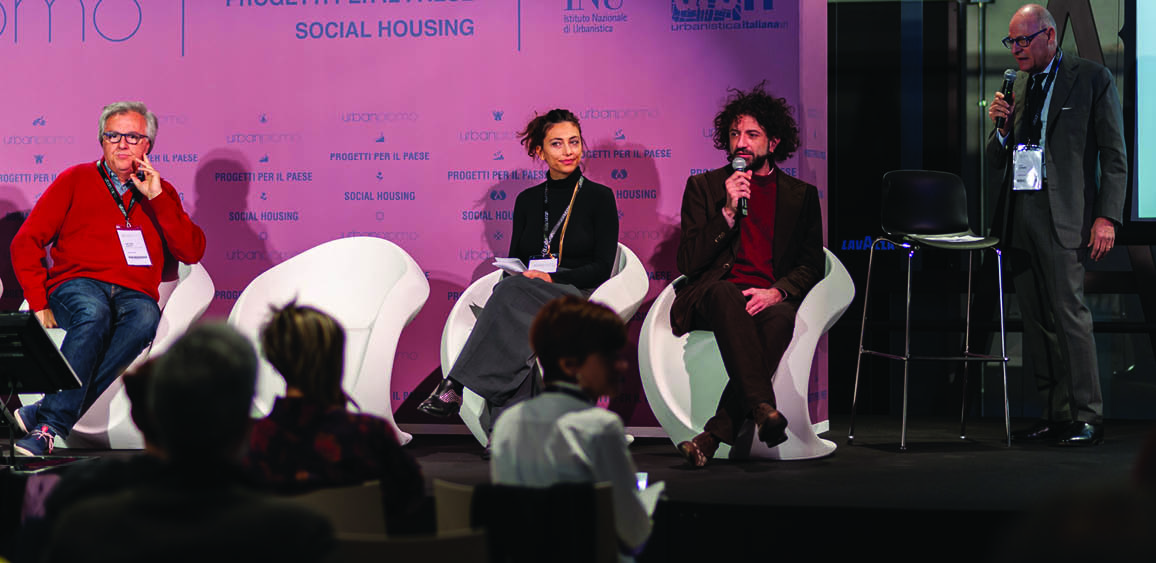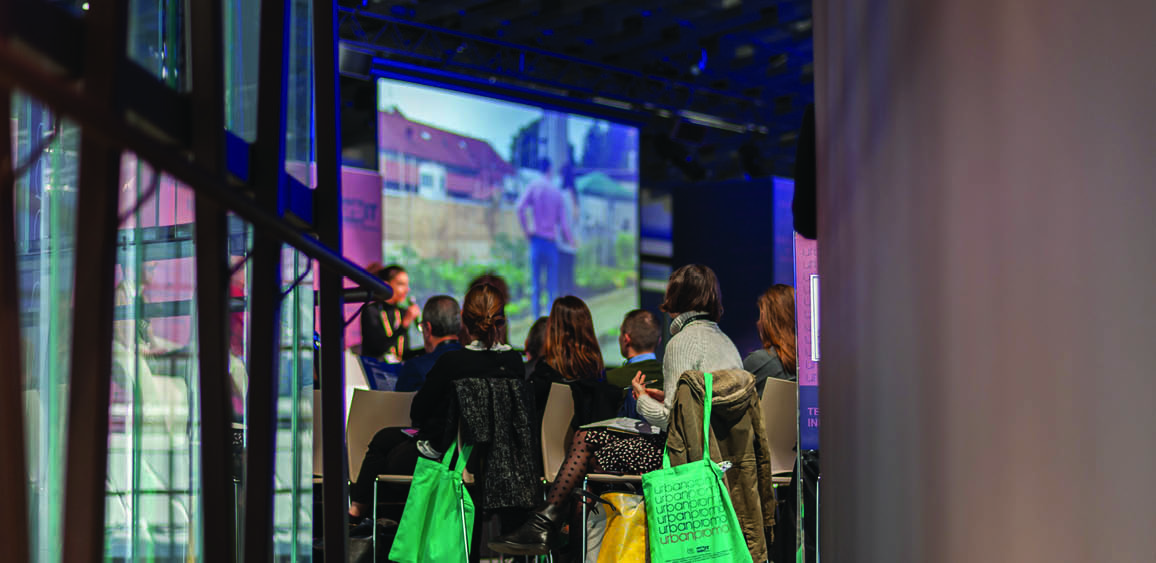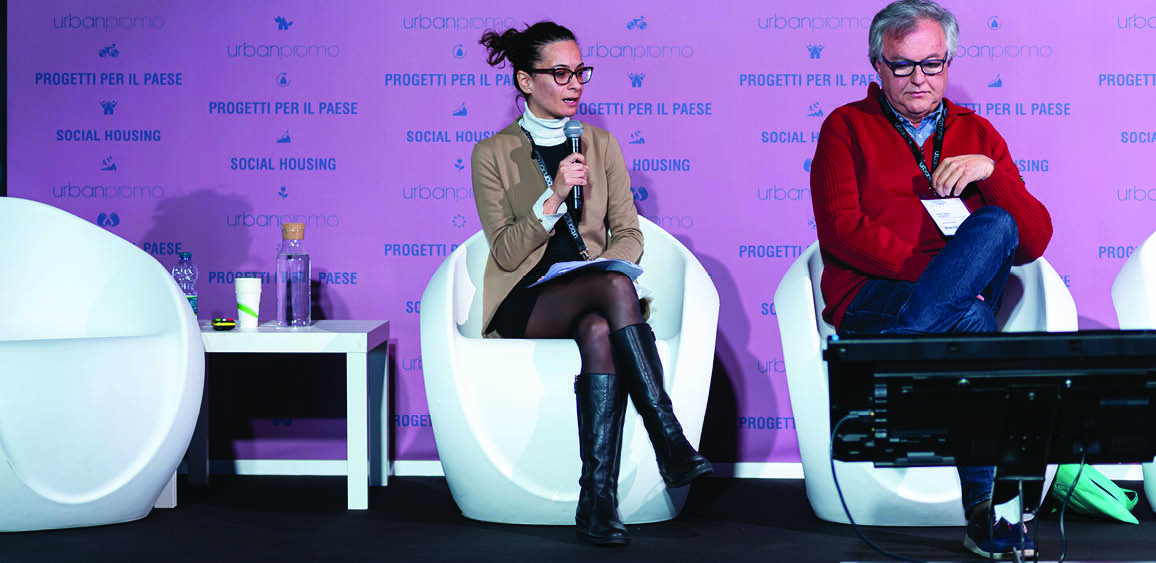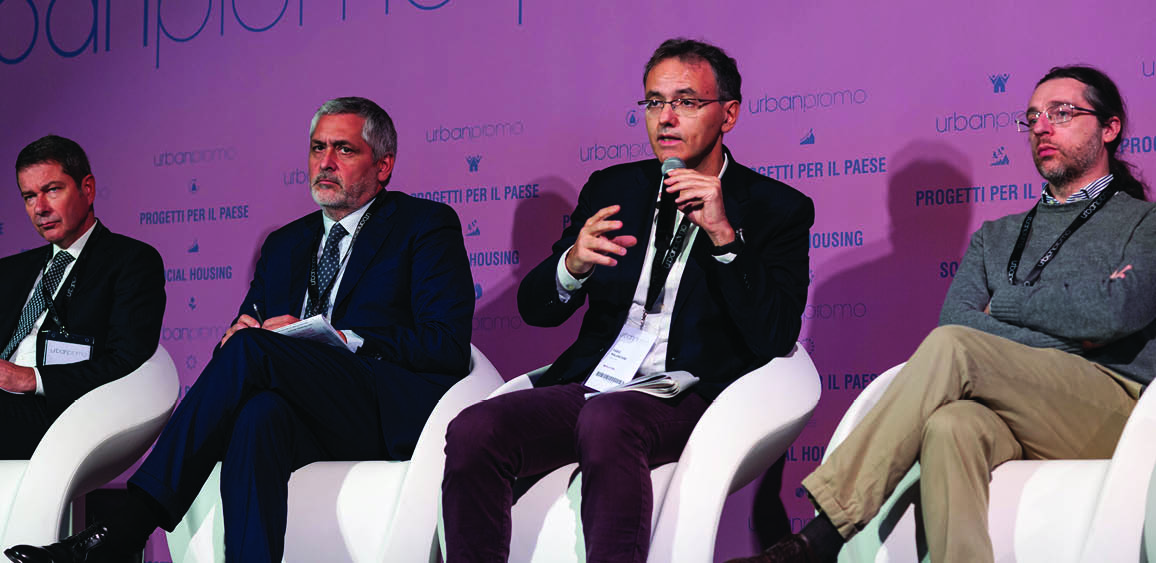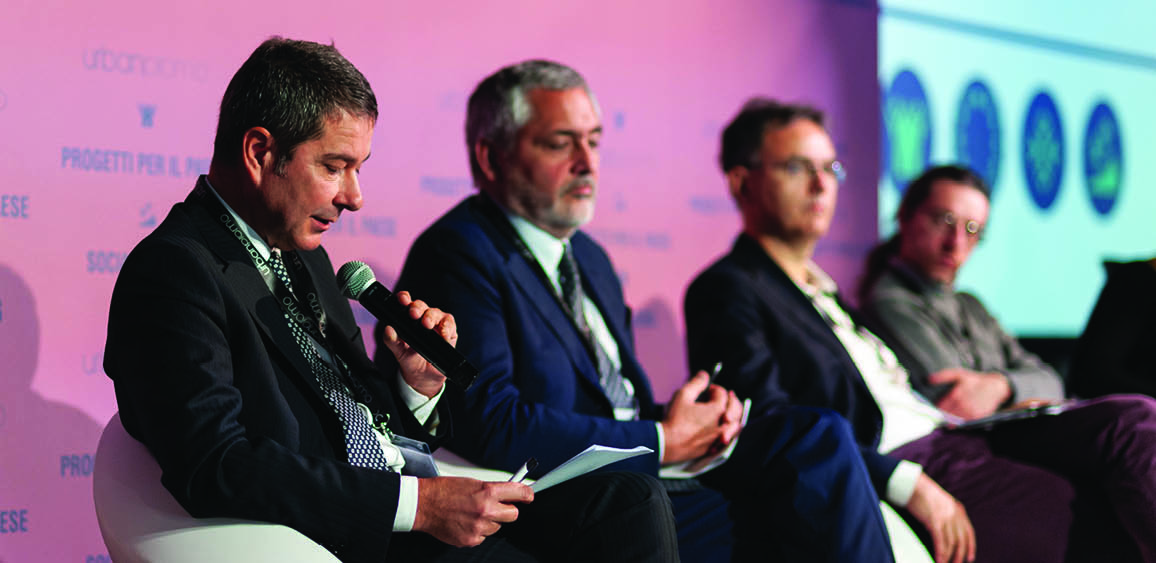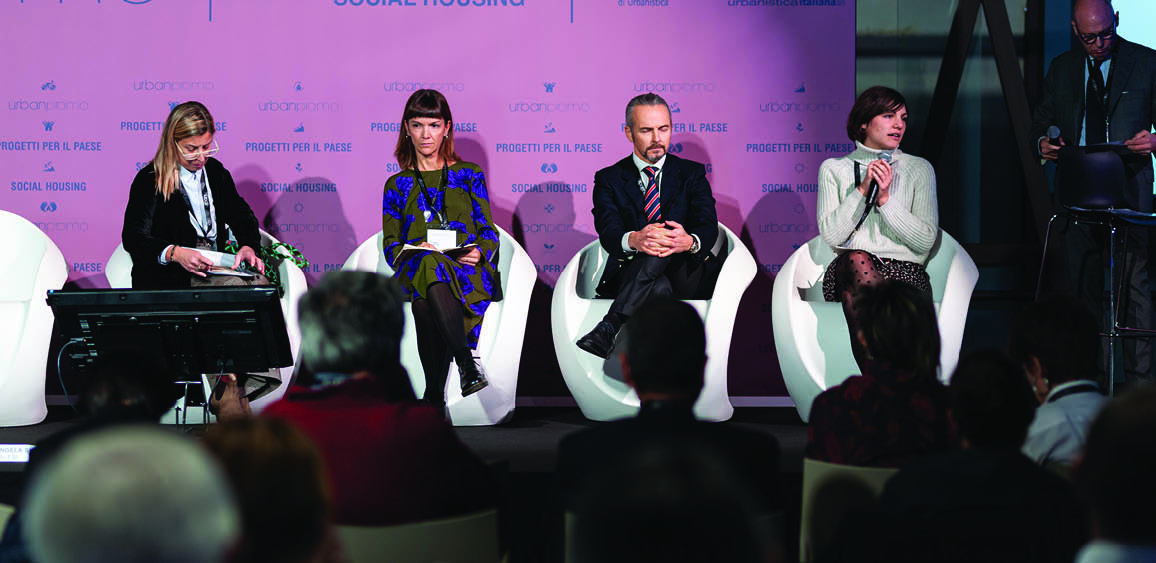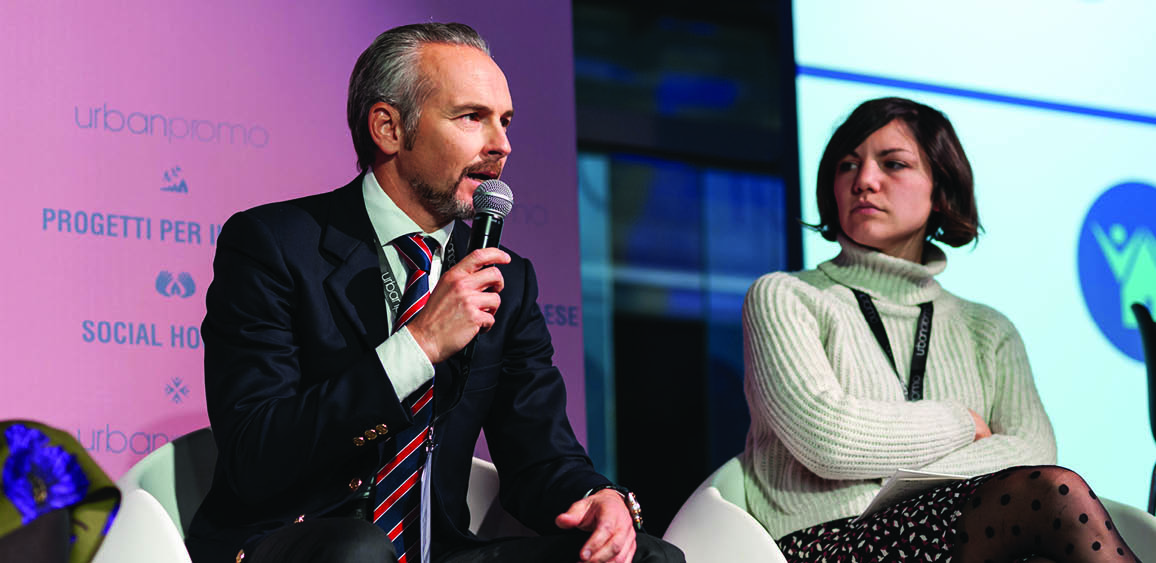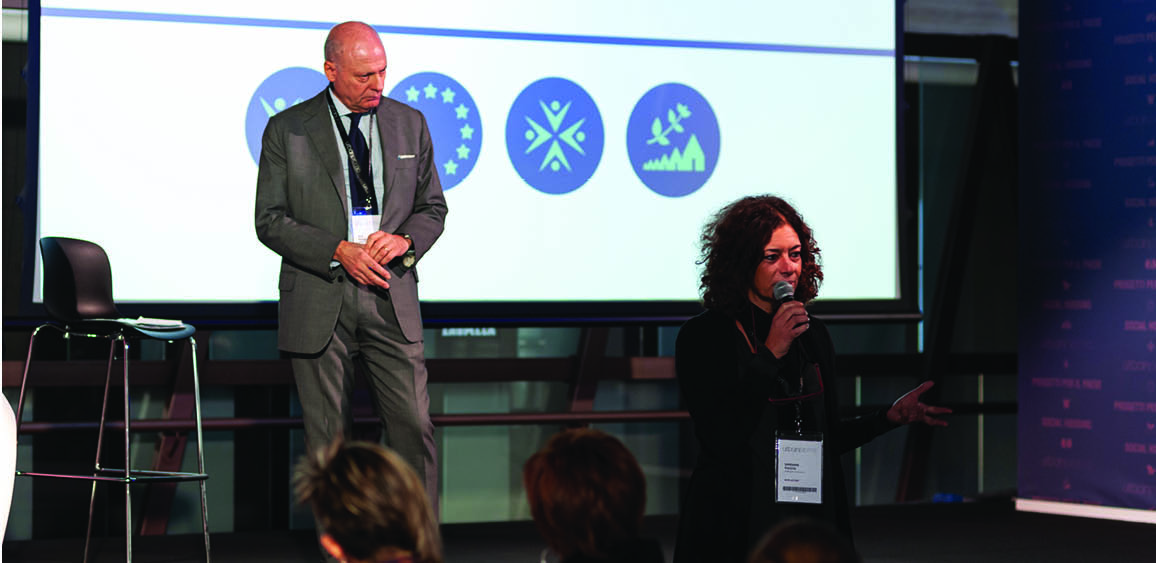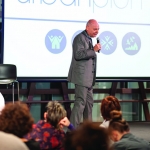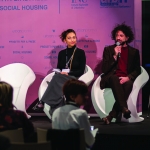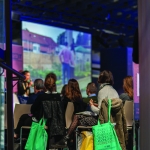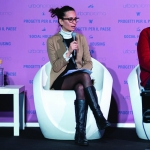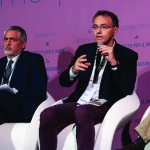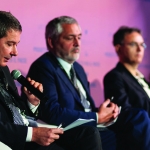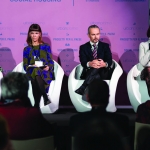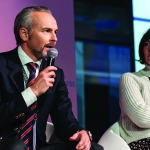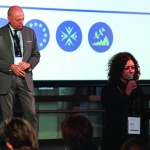9,00 – Registration of Participants
9,15 – Indoor Terrace: Start of Activities
Social Capital Enhancement
Session objectives:
– to identify and describe the different specificities of “social capital” and the different intervention paths
– the enabling ecosystems: actors, relationships and skills for the realization of enhancement activities, the underlying know-how, and tested models
– the role and contribution of innovation (social, technological, financial, etc.) in urban and social planning, having impact on sustainability and local development
Mediator:
Elio Morino, INU – National Urban Planning Institute
Speaker:
Elisa Saggiorato, Housing Program, Compagnia di San Paolo
Social Capital in Enhancement Activities
“Social capital” has different meanings; it is interesting to explain the different specificities of each of them and to be able to identify their relative intervention paths, overcoming the concept of “gray band” and analyzing both the components of permanent and/or temporary fragility, and the resources that distinguish a community inhabiting a specific urban context.
For sure, it is necessary to explore the social heritage, even where such asset is coming into being or historically “latent”, in cities, urban periphery and inland communities, where the role of local authorities is very important.
To be able to recognize it where it is present or coming into being allows adequate urban, economic and social planning, whose aim is to maintain sustainability over time.
In the new initiatives, it is necessary to think in terms of “enhancement” projects, rather than of “one-off” endeavors. It takes great expertise and experience, including in terms of micro-interventions of social mending with banking foundations, models of philanthropy and social entrepreneurship that plays a very important role.
Testimonials:
Fabrizio Coniglio, Kaninchen – Haus President and Artistic Director
Emanuela Saporito, OrtiAlti Community Planner
Discussants:
Guido Castelli, IFEL Foundation, formerly Mayor of Ascoli Piceno
Gaetano Giunta, President of the Messina Community Foundation
Roberta Lostumbo, Institutional Activities Office, Fondazione con il SUD
Enabling ecosystems: actors, relationships and skills for the realization of enhancement activities
There are no recipes, but a mix of interactions and partnerships that are often the result of “bottom-up actions”, developed at the local level. A strong and “equipped” public component that can identify the social impact indicators beforehand could create the conditions for a strategic vision, whose aim is to create a real estate lever based on social contents, new destinations with integrated projects, despite conditions of near-market failure, according to traditional real estate logics.
Local policies to support enabling ecosystems are fundamental and the result of public-private partnerships with capacity-building skills, of social public procurement (e.g., planning of tenders and specifications able to assign resources to competent local operators), and of an interdisciplinary planning that includes urban planning, urban sociology and forms of social entrepreneurship.
Testimonials:
Giulia Toffanin, DAI Manager (Becoming Adults Together), Associazione ACMOS
Discussants:
Riccardo Capo, AREXPO Operations Director
Linda Cossa, Senior Consultant – Avanzi
Angelo Marengo, COGESA President – Consortium for the management of social-assistance services
Angela Silvia Pavesi, Real Estate Center – ABC Department – Polytechnic University of Milan
Role and Contribution of Innovation in Urban and Social Planning
Investments in digital bricks, in services and in collaborative platforms, sharing economy models, lead to the evolution/change in job descriptions and intervention methods of actors involved in the field. Socially-based start-ups, triple helix model, which must be partly strengthened and renewed, pervasive digitalization, etc., promote new models and philanthropic approaches.
The growing role of social networks, fundraising and the emergence of equity crowdfunding lead to the identification of new courses of action promoting a transformative approach.
Through the dissemination of social-impact funds, which place the expansion of people’s skills and of social capital among their investment criteria, alongside proper financial returns, it is possible to generate positive changes in the wellness of communities, also through value creation.
Testimonials:
Erika Mattarella, Local Activity Coordinator of Cooperativa Sociale LiberiTutti
Marco Cavicchioli, Synapse Development Agency Vice President
Discussants:
Fabio Malanchini, Co-founder Ecomill srl
Fabio Salviati, President and CEO, SEFEA Impact
Marco Valerio Bellini, Be Trust Fiduciaria President
Conclusions:
Giorgio Righetti, ACRI General Director
13,30 – Guidelines and submissions for group work and Q&A
Doriana Piazza, Housing Program, Compagnia di San Paolo
Lunch break – Buffet
Italiano

